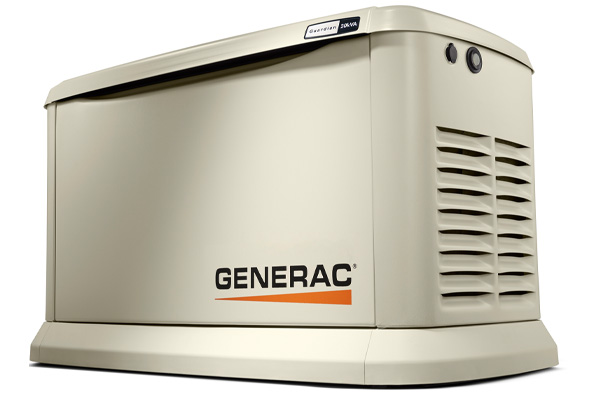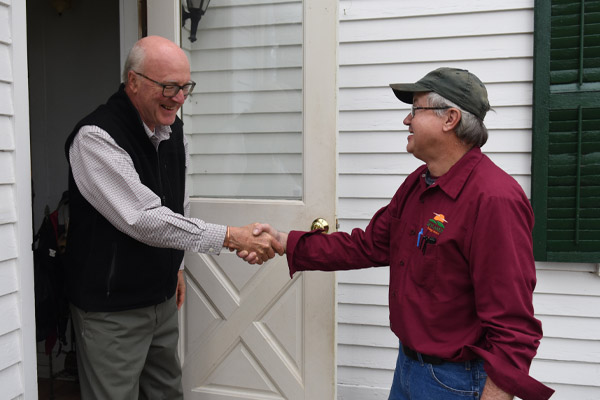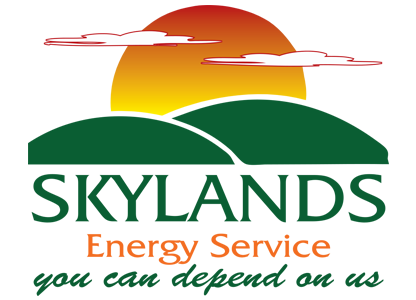 Generators are helpful during electrical blackouts or can be used in homes that are located in areas that are outside of the power grid. Many types of generators are available. Smaller ones can typically power a few appliances while others, which are much larger in size, offer a higher wattage, powering large buildings such as hospitals. One of the most commonly used types of generators in a residential setting is the backup generator. Since there are various sizes of whole-home generators, many homeowners wonder, “How to size a standby generator?”. This article includes all you need to know about this common question.
Generators are helpful during electrical blackouts or can be used in homes that are located in areas that are outside of the power grid. Many types of generators are available. Smaller ones can typically power a few appliances while others, which are much larger in size, offer a higher wattage, powering large buildings such as hospitals. One of the most commonly used types of generators in a residential setting is the backup generator. Since there are various sizes of whole-home generators, many homeowners wonder, “How to size a standby generator?”. This article includes all you need to know about this common question.
What Are Whole-House Generators?
Table of Contents
Whole-house generators are known by many names, including power generators, on-demand generators, backup generators, or standby generators. It provides backup power to the house or structure when a natural disaster or man-made circumstance leads to a blackout. They can be used for extended outages and can power your entire home, including all equipment and appliances – even the furnace or air conditioner.
They are often called emergency generators as well. These are big units installed on your home’s property. They also add a significant amount of value to your home. They give you peace of mind as they are highly reliable. The best part is you don’t have to operate it manually. Whole-house generators work automatically, switching on when interruptions or outages occur. It also automatically turns off, so you don’t need to intervene.
These generators power your refrigerator, so your food doesn’t spoil. It also supports your security system, so you have non-stop protection, which is helpful in case of disasters. If you work from home, then you won’t have to miss work. They can also keep you comfortable during outdoor extreme temperatures by powering your heating and air conditioning system.
Before installing a generator in your home, ensure that you have the right whole-house generator size first. The standby generator should have adequate power for all your appliances, especially those that require a lot of electrical power.
What Is Standby Generator Size?
It helps to understand how much power you need for your home before buying a generator. Generator sizes are based on their electrical output and not the generator’s physical dimensions, although you still need to put aside some space for the standby generator on your property.
Its electrical output is measured in kilowatts (kW) or watts. A thousand watts equal one kilowatt. Take note of this when determining the size you need.
A lot of people miscalculate when figuring out the generator size their home requires. They usually underestimate the wattage they need and end up buying a generator that’s too small. As a result, the generator is overloaded as it is pushed to supply more power than it is designed to. You don’t want this to happen as your generator will overheat and automatically turn off. Your generator can also get damaged. If the generator is too large, you have to pay more when you purchase it but also to operate it. Hence, consulting a professional is crucial to find the right generator size before its installation.
How To Size A Standby Generator?
Determining the standby generator size that works best for your home is a simple process that requires a calculator. Start with identifying the appliances and devices you want to power. Check the manual that came with all the big appliances you have so you can figure out the amount of running wattage they need. This is then multiplied by three. You should also take note of their starting wattage. Add all these devices to determine the total wattage you need for the generator.
You also need to understand the meaning of these wattages. The starting wattage is the initial high load electrical appliances need to start from a dead stop. Some appliances require extremely high starting loads, such as compressors and motors. On the other hand, the running load is what’s needed to ensure the device keeps running after its initial start.
The formula is calculated as follows: (Starting wattage x three) + running wattage
For instance, a refrigerator might need 700 watts as its starting wattage. Therefore, multiply this by three (2100 watts) to get the load on your generator. Let’s say, it consumes 300 watts once it starts running. So, the refrigerator’s total load is 2,400 watts.
The generator needs to meet this value so it can power a refrigerator. Do this to all the appliances and devices you want to power so you can figure out the total wattage required for your generator. Keep in mind that these are only the minimum and that it is a good idea to have some overhead. This way, the generator doesn’t overload and short out as a consequence.
Do I Need Professional Help?

You might have thought of doing the calculations yourself. However, it consumes a lot of time, and many things can go wrong. A single miscalculation can result in your generator overloading and, eventually, shorting out. This is why it is best to ask a professional to help you.
A professional will ensure that all appliances and electrical devices are taken into account before the generator installation commences. An expert will also make sure that the wiring and installation are conducted properly. They will also test the installed generator to be sure it works as it should and that it can handle all the appliances’ load without issue.
It is best to hire a professional because a whole-house generator also requires maintenance. They will help ensure that your generator is in excellent condition and operating as intended.
Conclusion
Getting a whole-house generator is a good idea. It needs proper execution, so you need to ensure that the wattage of all devices you want to be powered is calculated. Confirm that you have the correct calculation to prevent the generator from burning out. Hire a professional to do it for you to ensure a stress-free installation. You don’t need to worry about doing complex calculations or whether the generator will work as the professional will do it for you.
Call Skylands Energy Service For All Of Your Standby Generator Requirements
 Skylands Energy Service is one of the leading generator installation service providers in central New Jersey. Aside from installing backup generators, our company also offers repair, maintenance, and replacement services. We only have the best service contractors on staff, and they are well trained to use the most modern generator techniques. Therefore, contact us online or call our number today to know more about whole-house generator installation. We offer free, in-home estimates.
Skylands Energy Service is one of the leading generator installation service providers in central New Jersey. Aside from installing backup generators, our company also offers repair, maintenance, and replacement services. We only have the best service contractors on staff, and they are well trained to use the most modern generator techniques. Therefore, contact us online or call our number today to know more about whole-house generator installation. We offer free, in-home estimates.
Contact Skylands Energy Service today to have industry experts answer all of your generator queries.
Contact us now at (908) 707-1776 to find out more!

